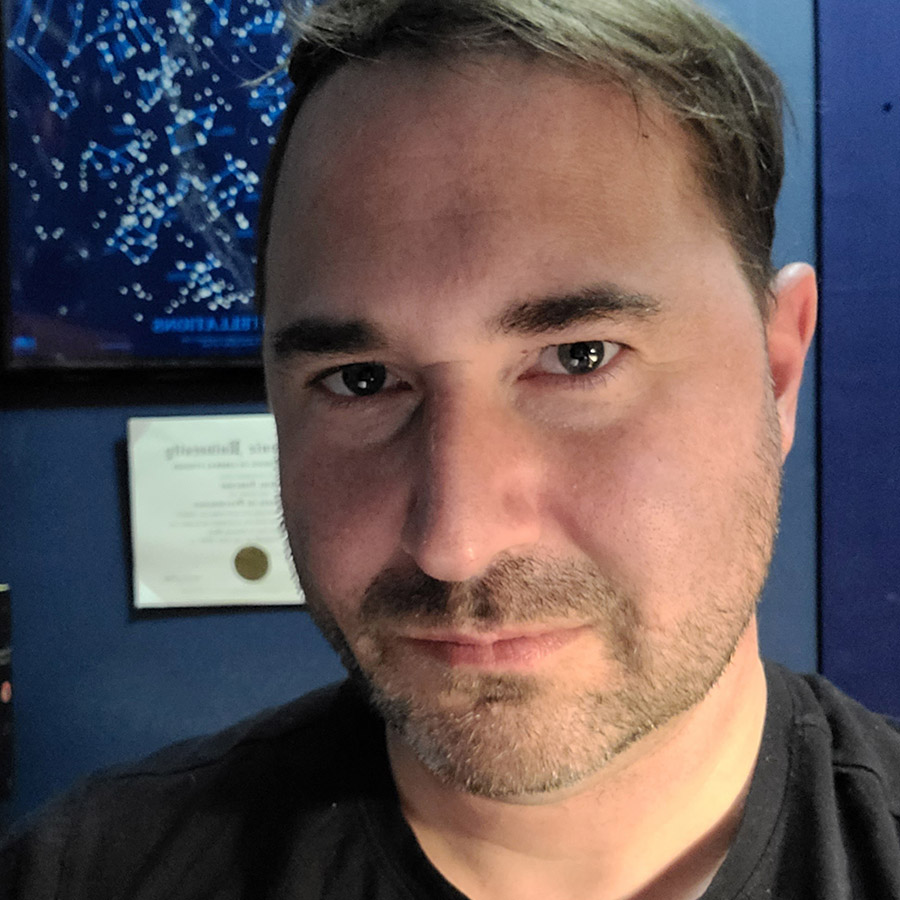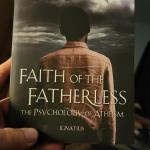
In a previous article, I reviewed Paul C. Vitz’s book Faith of the Fatherless which proposes that a contributing factor to atheism is the relationship one has with one’s father or father figure. The thesis being that an absent father or a poor relationship with one’s father increases the likelihood that one will take an atheistic stance on life.
However, tucked away in the back of Vitz’s book, almost as an aside, is a novel proposition of another contributing factor to atheism: autism.
I have written elsewhere on studies concerning the relationship between autism and religion. In that article, I reviewed research which suggested that individuals with Autism Spectrum Disorder (ASD) may actually experience religion in meaningful ways which are unique to their method of processing the world around them. Vitz, on the other hand, suggests that ASD individuals are likely candidates for atheism.
Autism and “Mind Blindness”
Vitz begins with the premise that individuals with ASD are noted to have significant interpersonal difficulties. As a consequence of this, the kinds of attachments they form to others, including parents, are, in his words, “typically weak or even nonexistent” (Vitz, 2013, pp. 176-177). The theory Vitz subscribes to suggests that ASD individuals fail to recognize external minds.
Consider the fact that the vast majority of humans are self-aware. Meaning they recognize their own individuality and have a sense of identity which separates them in some way from the external world.
Most theories of development state that at some point in early development, children begin to ascribe the attribute of identity and personality to people and things outside of themselves. That is, they say “If I have a mind, other people must have minds as well.”
On the theory Vitz is following, ASD individuals fail to reach the stage wherein they ascribe mindfulness to people outside of themselves. It is this failure to ascribe mindfulness to others which results in the social difficulties experienced by ASD individuals. Whereas most people could walk through the process of thinking “If I were in that person’s shoes, this is how I would feel,” ASD individuals cannot use the process of empathy to determine how others might feel or think.
Other people, says Vitz, are little more than animate objects to the autistic, and this “mind blindness” would extend to God as well. Indeed, says Vitz, autism has been linked to a lack of belief in God in a 2009 study by Q. Deeley. This, Vitz concludes, nicely fits into his own model of atheism insofar as a failure to form a strong, positive relationship with one’s father (or a father-figure at the very least) would contribute to atheism. That theory aside, the inability to form relationships precludes the possibility to form a relationship with God directly, with or without the preexisting relationship with one’s father. In fact, “mind-blindness” would extend to disembodied minds, invisible minds, or absent persons, as represented by God.
For reasons I will discuss shortly, I think Vitz’s argument here runs afoul of a few problems. However, it remains a fact that autism does tend to be strongly associated with atheism, with religion much less common in individuals with ASD. Vitz’s next argument may serve as a better explanation for that.
Systematic Thinkers
ASD is strongly associated with a sort of systematized thinking which works remarkably well with mathematical, logical, and scientific thought processes than it does with symbolism, thinking in the abstract, intuition, and “quick thinking.”
Vitz correctly points out that people who are slow, analytical thinkers are more likely to fall in the atheist camp than people who are rapid, intuitive thinkers. That autism is associated with analytical thought styles may be a stronger explanatory factor for the high degree of atheism in the ASD community than Vitz’s theory on fathers-attachment.
Response to Vitz on Autism
As discussed in my previous article on the relationship between ASD and religious belief, the “mind-blindness” theory of autism is somewhat outdated. Granted, the research Vitz cited was conducted within the 21st century, but findings on autism update at breakneck speeds.
Rates of diagnosis on ASD continue to accelerate, with more people receiving this diagnosis with each year that goes by. The physiological and environmental causes of autism are still a matter of significant debate, and the science is far from settled, which is among the reasons that any study written on autism now will likely be obviated or contradicted by new research a month from now.
Indeed, neurologists find so many inconsistencies between specific cases of autism that it is not uncommon within the neurological field to refer to the disorder as “the autisms,” suggesting that this is not one monolithic, united disorder, but, perhaps, a wide variety of disorders sharing similar features and lumped under a single diagnosis.
As a consequence, any single statement about ASD, its features, and its effects is likely to only be relevant to a small segment of the ASD community.
Attachment difficulties between parents and the ASD children are likely to be a two-way street. One needs to meet an ASD individual where they are at, as it tends to be more difficult for the ASD individual to intuitively sense and understand the feelings and intentions of others. However, Vitz’s description of ASD is more consistent with Antisocial Personality Disorder (APD) than it is with ASD. People with APD do tend to be mind-blind, insofar as they do not recognize other people as thinking, feeling people with value equal to themselves. However, individuals with APD tend to become “mind literate” in that they are able to absorb and adapt to social conventions, to understand how people function on a social level, and frequently use this social literacy to manipulate others to their own ends.
Individuals with autism do, indeed, desire and pursue personal and meaningful relationships with parents and other people. Like most people, ASD individuals interpret the intentions and feelings of other people through the lens of how they, the ASD person, think and process. Because the larger population do not process information in the same way as the ASD person, this leads to a lot of misunderstandings from both sides. Autistics are not “mind-blind” so much as they are “mind-illiterate.”
Indeed, one finds strong communities of ASD people who are able to meet together, form relationships, and understand one another due to the similarities in thought processes and shared experiences. Among the things which make religion difficult for people with ASD is the failure to integrate with religious communities. As with any other social group, religious communities do not understand the needs and thought processes associated with ASD, and are unable to adapt to meet those needs.
Personal Experience
I have worked for most of my professional life with ASD individuals in various settings. Since my work has been largely with people on the extreme end of the spectrum, meaningful communication has been difficult if not impossible in most of these cases. The autistics I have met at the high functioning end of the spectrum have almost all been part of religious communities to one degree or another, largely because such communities were driven by their moral convictions to care for people with needs. Those individuals threw themselves fully into their religious beliefs and practices, frequently becoming involved in ministry to some degree or another.
Within recent years, a breakthrough has been made for communicating with low-functioning autistics called “spelling to communicate” (S2C). By this means, a non-verbal autistic can learn to spell out his thoughts, giving him access to communication with the outside world, often for the first time in his life.
I was recently privileged to witness a conversation between two such men, one religious and the other not. The religious man communicated that he was becoming more fully devoted to his religion as he had finally forgiven God for his lifelong struggle with ASD. The other man responded that he had not yet come to a point where he could forgive God for that.
This exchange illuminated a point not yet explored in any of the studies I have encountered, namely, the lifelong pain and struggle one faces when one has a severe case of autism. As with any other chronic condition, such a lifelong struggle may also be a contributing factor to the atheism so frequently seen in the ASD community.


















